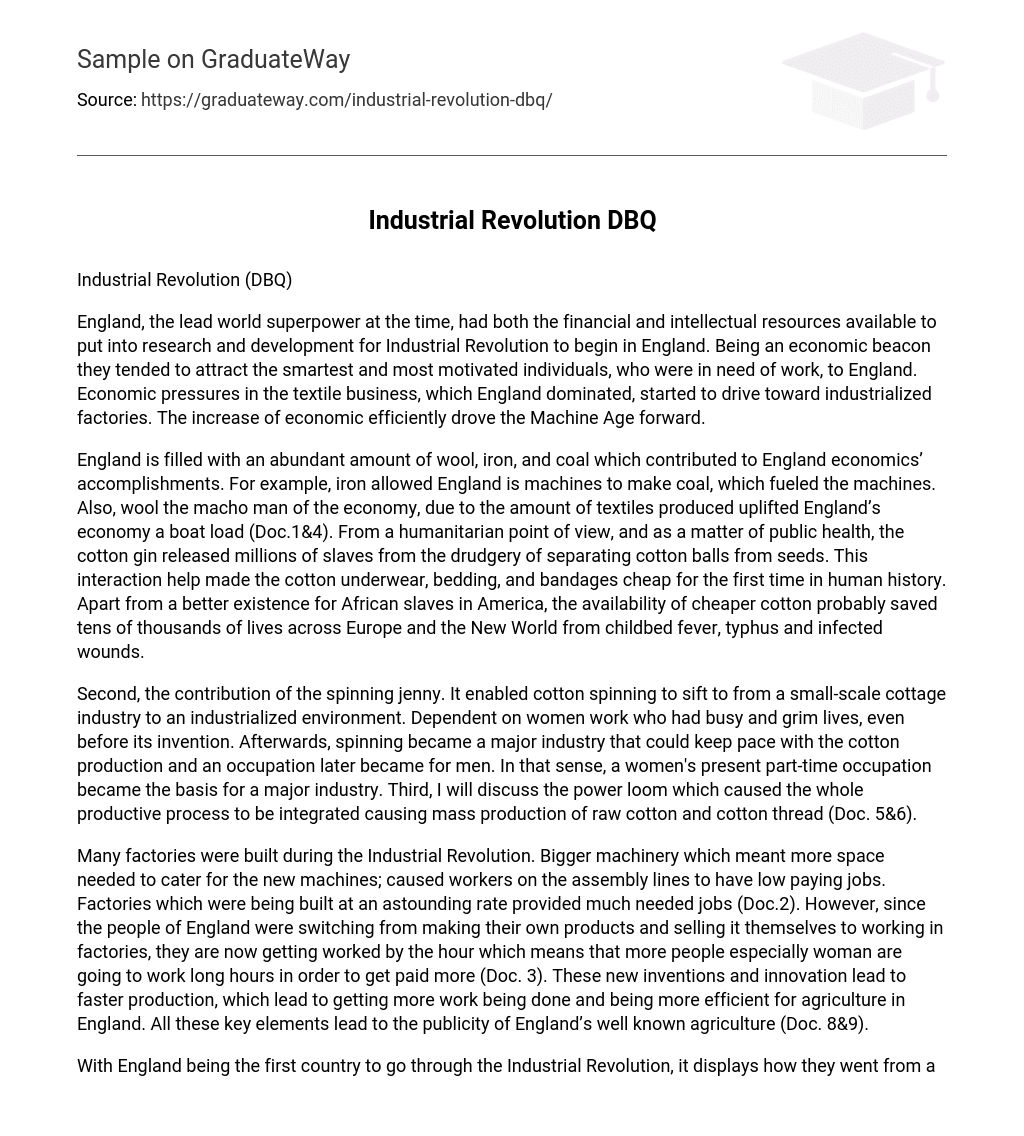Industrial Revolution (DBQ)
Due to its status as the prevailing global superpower, England possessed both the financial resources and intellectual capabilities necessary for investment in research and development. Consequently, this sparked the commencement of the Industrial Revolution within England’s borders. Being an economic powerhouse, England naturally drew in highly intelligent and driven individuals who sought employment opportunities. Simultaneously, England’s textile industry, already well-established, encountered economic pressures that necessitated the adoption of mechanized factories. The resulting enhanced efficiency ushered in the arrival of the Machine Age.
England’s economic success was greatly influenced by its abundant resources of wool, iron, and coal. These resources played a crucial role in fueling England’s industrial advancements. For instance, the availability of iron allowed for the development of machines that could effectively make use of coal as a source of energy. Additionally, the thriving textile industry, driven by the production of wool, significantly boosted England’s economy (Doc.1&4). Moreover, the invention of the cotton gin brought about significant humanitarian benefits. By mechanizing the process of separating cotton balls from seeds, it freed millions of slaves from laborious tasks. This innovation not only improved the living conditions of African slaves in America but also led to the mass production of affordable cotton goods like underwear, bedding, and bandages in human history. Consequently, this availability of inexpensive cotton products likely saved countless lives across Europe and the New World, combating diseases such as childbed fever, typhus, and infected wounds.
Secondly, the spinning jenny played a significant role in transforming cotton spinning from a small-scale cottage industry into a modernized industrial setting, relying on the labor of women who already had demanding and difficult lives. Following its invention, spinning evolved into a prominent industry that could keep up with cotton production, eventually attracting male workers. Thus, what was initially a part-time occupation for women became the foundation for a booming industry.
Furthermore, I will explore the impact of the power loom, which led to the integration of the entire production process and facilitated the mass production of raw cotton and cotton thread (Doc. 5&6).
During the Industrial Revolution, numerous factories were constructed to accommodate bigger machinery and provide jobs for workers on assembly lines. Despite the low wages offered, the rapid construction of factories helped alleviate the demand for employment (Doc.2). However, as people in England transitioned from being self-sufficient producers to factory workers, they began to be paid by the hour, resulting in longer working hours for many individuals, particularly women, who sought higher pay (Doc. 3). These advancements in technology and innovation not only increased production speed but also improved efficiency in agriculture, contributing to England’s renowned agricultural industry (Doc. 8&9).
England’s status as the first country to undergo the Industrial Revolution showcases its transformation from a small nation to a highly developed one. The English effectively harness their resources, including their workforce, contributing to their ranking as one of the top nations globally.





